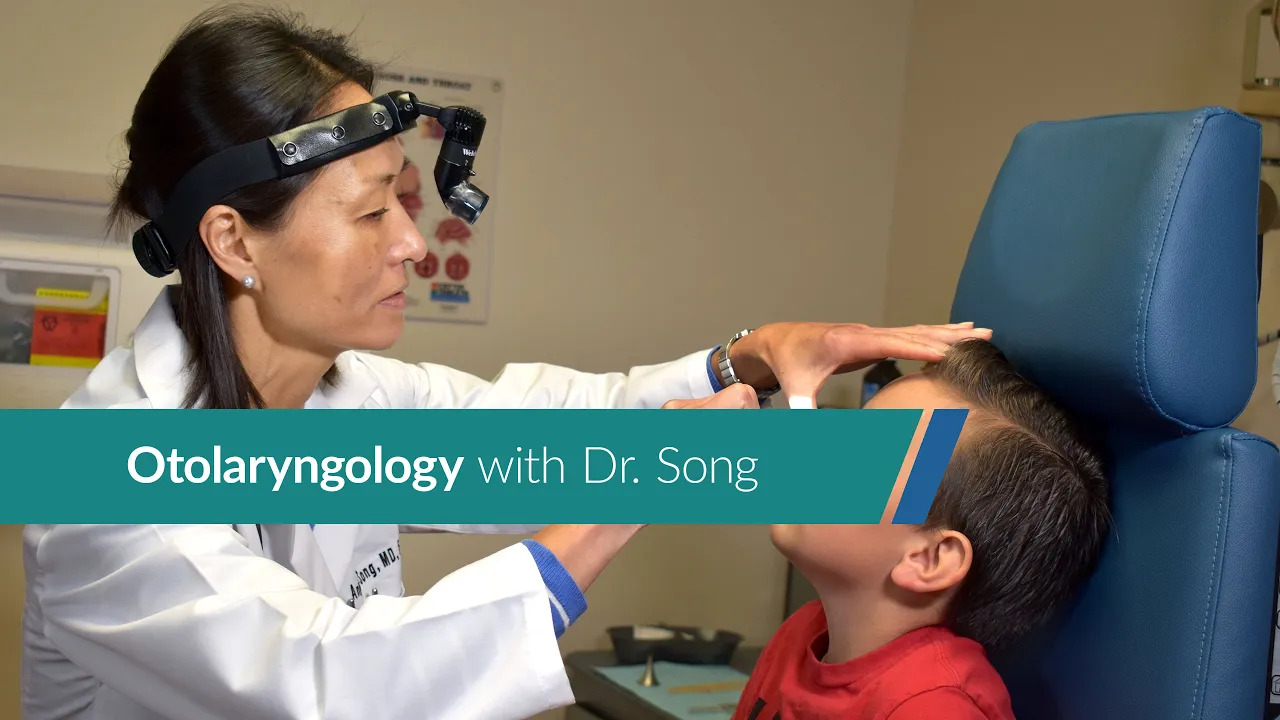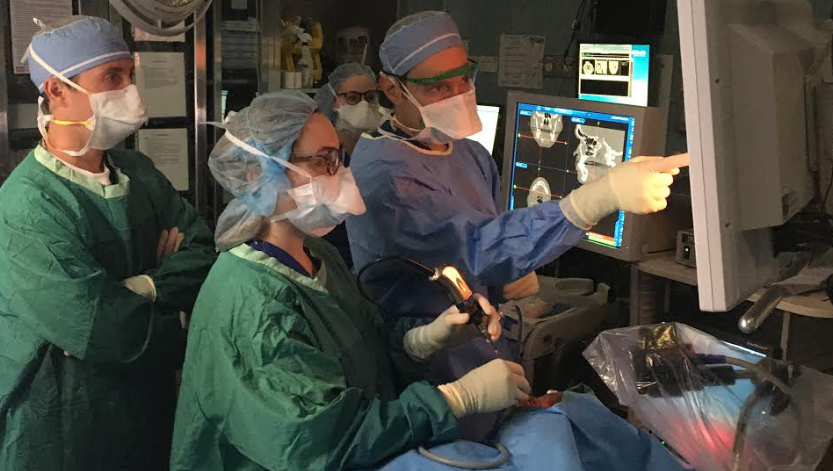Is ENT Surgery the Right Option for Sleep Disorders?
Wiki Article
Exploring the Area of Otolaryngology: What to Anticipate When You Get In Touch With an ENT
Otolaryngology, typically described as ENT, includes the medical diagnosis and treatment of throat, nose, and ear conditions. For those experiencing associated concerns, speaking with an ENT professional can provide clearness and alleviation. Comprehending what to anticipate throughout such appointments is necessary for reliable communication and care. This introduction will certainly lay out essential aspects of the ENT experience, consisting of usual factors for visits and the processes associated with diagnosis and treatment.
Understanding Otolaryngology: A Summary
Otolaryngology, typically referred to as ENT (Throat, ear, and nose) medicine, is a customized branch of medicine that concentrates on the medical diagnosis and therapy of problems influencing these essential locations of the human body. This area includes a variety of problems, consisting of those related to hearing, equilibrium, respiratory feature, and speech. Otolaryngologists are educated to take care of both clinical and medical treatments, making use of advanced techniques and modern technologies. Their expertise expands past traditional ailments, attending to issues such as allergic reactions, sinus infections, and hearing loss. In addition, they play a critical duty in the management of head and neck cancers, supplying thorough treatment customized to individual person needs. In general, otolaryngology remains important for keeping health and high quality of life in damaged people.Common Factors to See an ENT Specialist
Several individuals seek the experience of an ENT professional for a selection of factors, mirroring the varied nature of conditions that affect the ear, nose, and throat. Typical concerns include chronic sinusitis, which often causes persistent nasal blockage and facial pain. Allergies and their associated signs, such as sneezing and itching, also motivate sees to these specialists (Sinus). Hearing loss, whether unexpected or progressive, is an additional considerable factor for appointment. Additionally, people might seek evaluation for throat disorders, including relentless hoarseness or ingesting troubles. Sleep apnea, identified by interrupted breathing throughout rest, is regularly dealt with by ENT specialists. Each of these problems highlights the value of specialized treatment in handling complex ENT-related wellness issues
Planning for Your ENT Visit
When getting ready for an ENT appointment, it is vital to collect relevant details and take into consideration any details worries. People should assemble a detailed clinical background, including previous ear, nose, or throat problems, surgeries, and existing drugs. Recording symptoms-- such as extent, period, and frequency-- can supply valuable insights for the ENT expert. In addition, people must prepare a checklist of inquiries they want to ask, making certain that all concerns are resolved throughout the see. Bringing along any appropriate clinical records or examination outcomes can even more aid the ENT in comprehending the person's problem. Finally, people need to validate their consultation details, including time, day, and location, to decrease any kind of final confusion. Correct prep work can improve the effectiveness of the consultation and lead to much better results.What to Anticipate During the Appointment
As the assessment begins, the client can expect to participate in a complete conversation with the ENT expert regarding their signs and symptoms and clinical history. The professional will ask about the period, frequency, and seriousness of symptoms such as hearing loss, nasal blockage, or aching throat. Additionally, the client's previous medical conditions, drugs, and any kind of appropriate family members history will be evaluated, helping the expert in creating a total understanding of the patient's health and wellness. The ENT may likewise ask regarding way of life elements, such as direct exposure to allergens or irritants. This open dialogue establishes a foundation for the examination, guaranteeing that the person's problems are attended to and setting the phase for any needed assessments or recommendations for treatment.
Analysis Tests and Procedures in Otolaryngology
A variety of analysis tests and procedures are important in otolaryngology to precisely assess and identify conditions impacting the ear, throat, and nose. Typical tests include audiometry, which gauges hearing function, and tympanometry, examining middle ear stress. Nasal endoscopy allows visualization of the nasal passages and sinuses, while laryngoscopy analyzes the throat and singing cables. Imaging techniques, such as CT scans and MRIs, supply detailed sights of head and neck frameworks. Allergic reaction testing may likewise be conducted to determine triggers for sinus or respiratory system issues. These diagnostic devices enable ENT professionals to create a detailed understanding of individuals' conditions, making certain customized and effective administration strategies. Correct diagnosis is vital for effective treatment end results in otolaryngology.Treatment Options Provided by ENT Specialists
ENT professionals use a range of treatment choices tailored to resolve particular conditions impacting the nose, throat, and ear. These therapies range from conventional techniques, such as drug and way of living adjustments, to more intrusive procedures. For example, allergic reactions might be taken care of with antihistamines or immunotherapy, while persistent sinusitis might need nasal corticosteroids or sinus surgical procedure. For hearing loss, ENT specialists frequently suggest listening device or medical interventions like cochlear implants. In situations of throat disorders, options can consist of speech treatment or medical treatments to remove obstructions. Additionally, they might offer advice for managing rest apnea, consisting of making use of CPAP gadgets or medical interventions. On the whole, the goal is to improve patients' high quality of life via personalized care and efficient treatment approaches.When to Seek Follow-Up Care With an ENT
Acknowledging when to look for follow-up care with an ENT specialist is vital for managing ongoing signs or difficulties connected to ear, throat, and nose problems. Clients need to consider scheduling a follow-up visit if signs linger regardless of initial treatment, such as persistent ear discomfort, nasal blockage, or throat discomfort. Modifications in hearing, equilibrium concerns, or unusual nasal discharge may likewise call for further examination. Additionally, if a person experiences side effects from recommended medicines or has undergone a medical here treatment, follow-up care is essential to check recuperation and deal with any kind of concerns. Timely appointments can guarantee efficient administration of conditions, protect against possible difficulties, and provide comfort concerning one's wellness. Seeking follow-up care advertises proactive wellness management in otolaryngology.Regularly Asked Questions

What Qualifications Should I Seek in an ENT Specialist?
When seeking an ENT specialist, one should seek board qualification, pertinent experience, and strong individual reviews. In addition, effective communication abilities and a compassionate technique can greatly enhance the general therapy experience.Just how Do I Pick the Right ENT for My Demands?
Selecting the best ENT specialist involves assessing their qualifications, experience, and individual reviews (ENT surgery). It is crucial to ponder their communication design and technique to therapy, guaranteeing they align with the person's certain health demands and choicesExist Any Type Of Dangers Connected With ENT Procedures?
The risks linked with ENT treatments might include infection, bleeding, anesthetic issues, and potential damage to surrounding structures. Individuals need to talk about these dangers with their medical professional to comprehend specific issues and guarantee notified decisions.How Can I Take Care Of Anxiety Prior To My ENT Appointment?
To manage anxiousness prior to a visit, individuals can practice deep breathing workouts, envision positive end results, prepare questions ahead of time, and seek support from pals or family members, fostering a feeling of peace of mind and calmness.What Should I Do if I Experience Side Results From Treatment?
If side results from treatment occur, the individual ought to promptly report them to their medical care service provider. Changes to treatment or extra treatments might be needed to assure security and effectiveness in handling their problem - Otorrinolaringologia. As the appointment starts, the patient can expect to engage in a detailed conversation with the ENT specialist concerning their signs and symptoms and medical background. These diagnostic tools enable ENT specialists to develop a detailed understanding of people' conditions, making certain customized and effective administration strategies. ENT professionals offer a range of therapy alternatives tailored to attend to specific conditions affecting the throat, ear, and nose. When looking for an ENT expert, one should look for board certification, appropriate experience, and strong patient testimonials. Choosing the appropriate ENT professional involves reviewing their credentials, experience, and client reviewsReport this wiki page